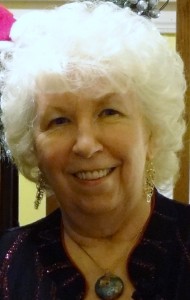(This piece was written and published a number of years ago. When the late Peter Gzowski was hosting Morningside on CBC Radio, he asked listeners to send him something about Christmas for his Christmas Eve program. I sent this and he read it to end his program that day. Years later, I read it myself on Christmas Eve, on the CBC Radio Mainstreet program that covered the Maritimes. I was hoping to give you a link to hear me reading it but I couldn’t find it so I’m afraid you’ll have to read it yourself. I hope you enjoy it and I wish you all the best of the Christmas season.)
In the mid-‘60s, I was a student in Montreal. One year, my schedule made it impossible for me to leave for home before December 24 so there I was, deciding whether I should spend much of Christmas in a little room in residence or whether I should spend it on the train. I decided in favour of the train.
I was very familiar with Montreal’s Central Station and always looked forward to the atmosphere there in the few days leading up to Christmas. There would always be a big raucous crowd at the far end of the station. Mostly everyone would be carrying shopping bags filled with wrapped gifts; there would usually be a couple of people with guitars and there’d be lots of excited children. When that big white-on-black sign was rolled into place listing the destinations — Trois Rivières, Québec City, Montmagny, Rivière du Loup, Rimouski, Mont Joli, Campbellton, Bathurst, Newcastle, Moncton, Amherst, Truro, Halifax and Sydney — there was a cheer and a good-natured crush as we all prepared to go down the stairs and board the Ocean Limited. These were eastern Quebecers and Maritimers going home for Christmas.
It wasn’t like that on that Christmas Eve. The station was dim and quiet, the way airports are late at night. There was a straggling handful of us waiting to board; we were subdued and cheerless.
It was late evening when we got on the train but even still, most of us gravitated toward the club car and soon began to talk. We exchanged stories of who we were, where we were going, why we were travelling on Christmas Eve. Some people were in my situation — they had worked up until that afternoon. One young couple had planned to stay in Montreal for Christmas and had decided at the last minute that they couldn’t bear not being home.
We talked about who would be meeting us at our various station stops and about little family traditions we were missing by not being home tonight. By the time we went off to our berths and roomettes, we were feeling quite warm and cheerful, the way you do when you’ve made new friends.
When we congregated in the morning — a sunny Christmas morning — in CN’s dining car, we were already rolling through the impossibly white snowy Québec countryside along the St. Lawrence River.
It was then that we began to lose some of our crowd and we established an instant tradition: at each station, as someone was leaving the train, all the rest of us would gather around the door to wave to the family on the platform and to sing a rousing chorus or two of “We Wish You A Merry Christmas.” We just kept waving and singing until the train pulled out.
By the time we were crossing the Gaspé peninsula, heading towards northern New Brunswick, we were having a real Christmas dinner, drinking toasts to each other and to our crew and acknowledging that so far, believe it or not, we were having a pretty good Christmas.
By mid-afternoon, our numbers had dwindled and as we approached the broad sweep of the Miramichi River valley, I began gathering my stuff together to be the next one to go. At the Newcastle station, I was waved and sung off the train by fewer people than there’d been earlier but with no less enthusiasm. My mother and father and I stood on the platform watching the train out of sight as it continued on toward Moncton.
The five-mile drive to Chatham was a merry one as I reported all the details of the trip. Everyone — including me — was surprised at the exuberance of my mood, everything considered.
There was one more surprise. Although both towns had the quiet empty streets and the unmistakeable atmosphere of Christmas Day, in our own house, the calendar had been set back. They didn’t want me to miss the special feeling of Christmas eve so the presents remained wrapped under the tree, the mince pies were on the counter ready to be baked, and the turkey was still in the bottom of the fridge, ready to be roasted with all its trimmings on Boxing Day.
When I’d left Montreal the night before, I had resigned myself to having no Christmas at all. I ended up having two Christmases — which turned out to be much more satisfactory.



